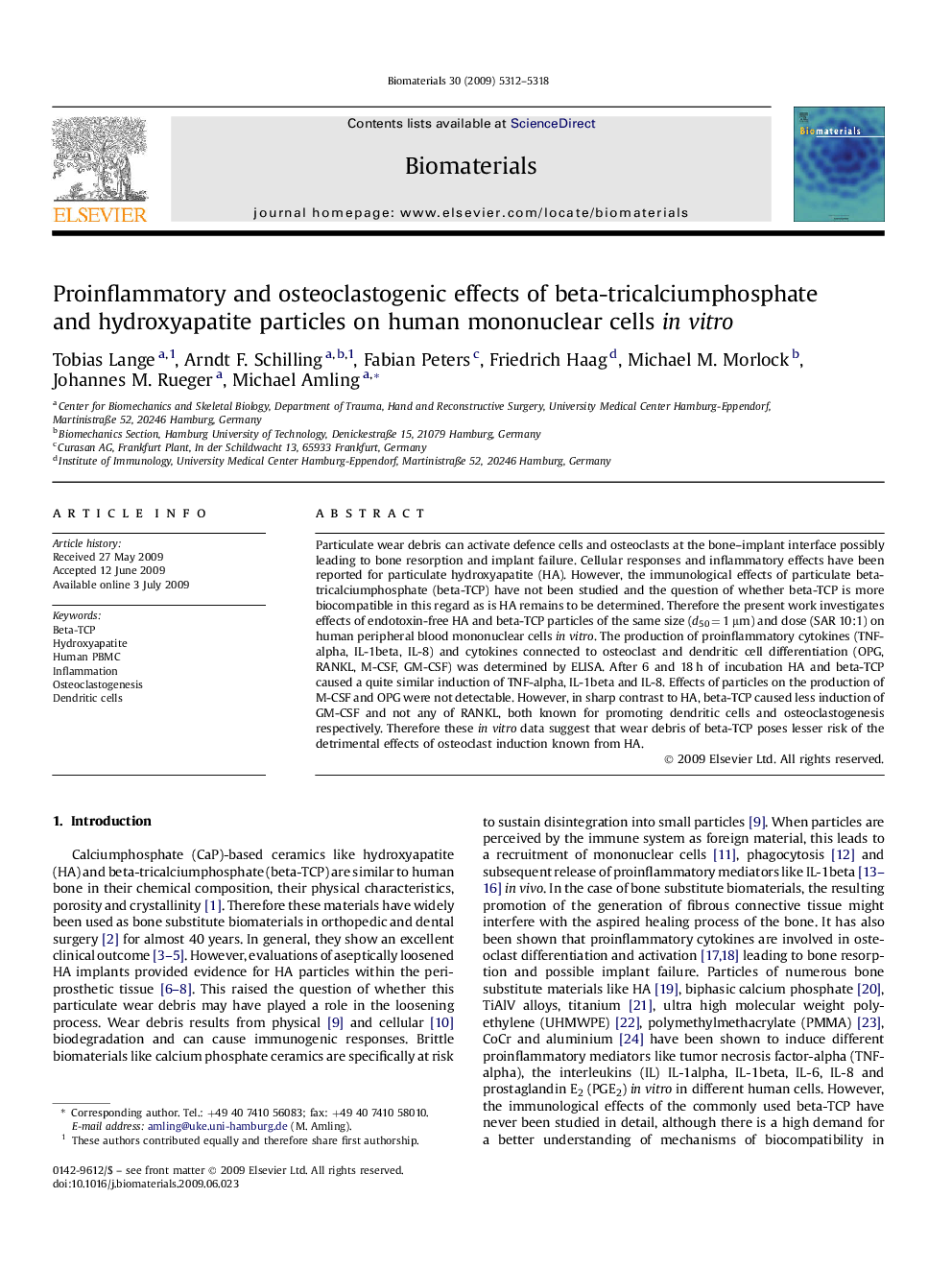| Article ID | Journal | Published Year | Pages | File Type |
|---|---|---|---|---|
| 8898 | Biomaterials | 2009 | 7 Pages |
Particulate wear debris can activate defence cells and osteoclasts at the bone–implant interface possibly leading to bone resorption and implant failure. Cellular responses and inflammatory effects have been reported for particulate hydroxyapatite (HA). However, the immunological effects of particulate beta-tricalciumphosphate (beta-TCP) have not been studied and the question of whether beta-TCP is more biocompatible in this regard as is HA remains to be determined. Therefore the present work investigates effects of endotoxin-free HA and beta-TCP particles of the same size (d50 = 1 μm) and dose (SAR 10:1) on human peripheral blood mononuclear cells in vitro. The production of proinflammatory cytokines (TNF-alpha, IL-1beta, IL-8) and cytokines connected to osteoclast and dendritic cell differentiation (OPG, RANKL, M-CSF, GM-CSF) was determined by ELISA. After 6 and 18 h of incubation HA and beta-TCP caused a quite similar induction of TNF-alpha, IL-1beta and IL-8. Effects of particles on the production of M-CSF and OPG were not detectable. However, in sharp contrast to HA, beta-TCP caused less induction of GM-CSF and not any of RANKL, both known for promoting dendritic cells and osteoclastogenesis respectively. Therefore these in vitro data suggest that wear debris of beta-TCP poses lesser risk of the detrimental effects of osteoclast induction known from HA.
